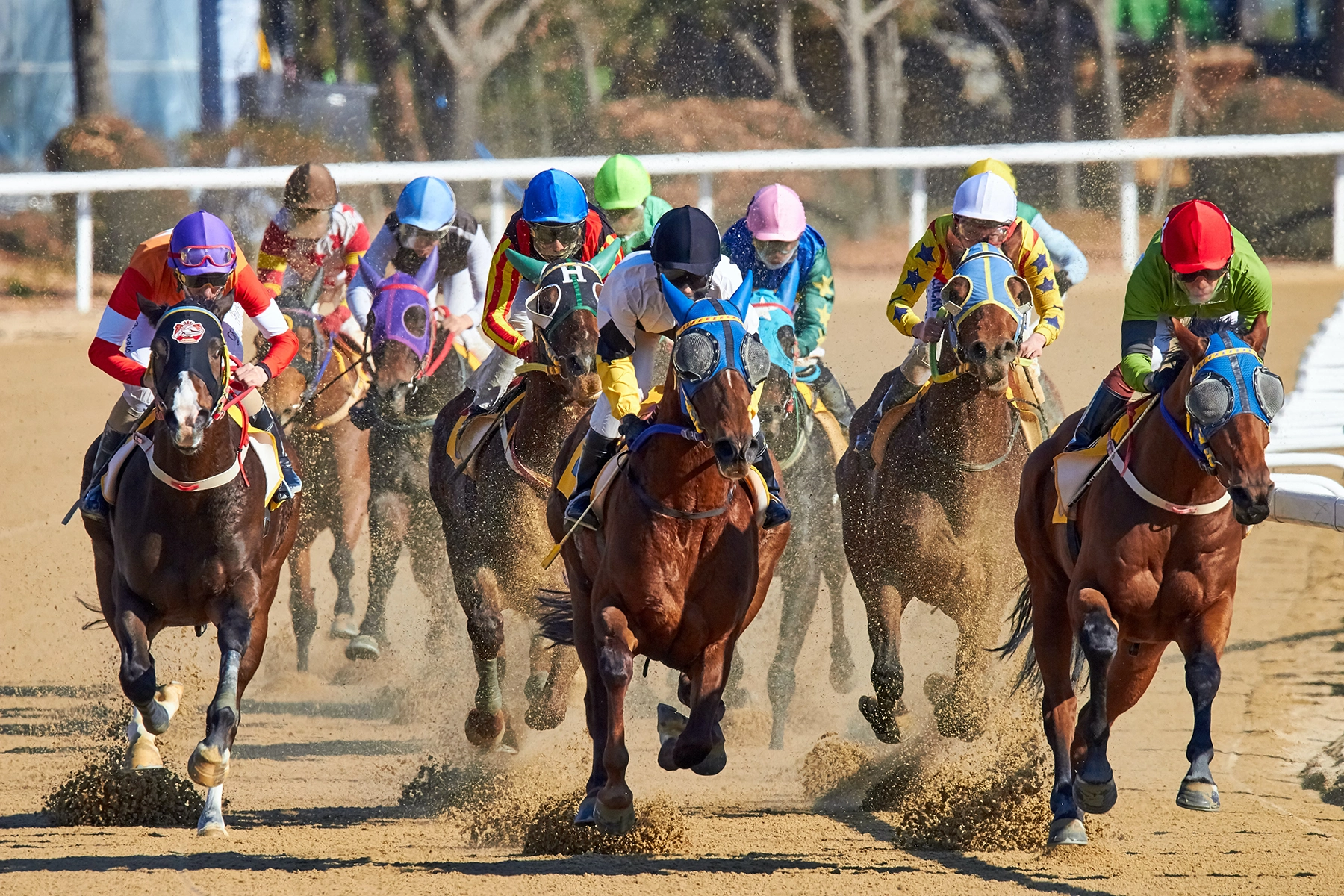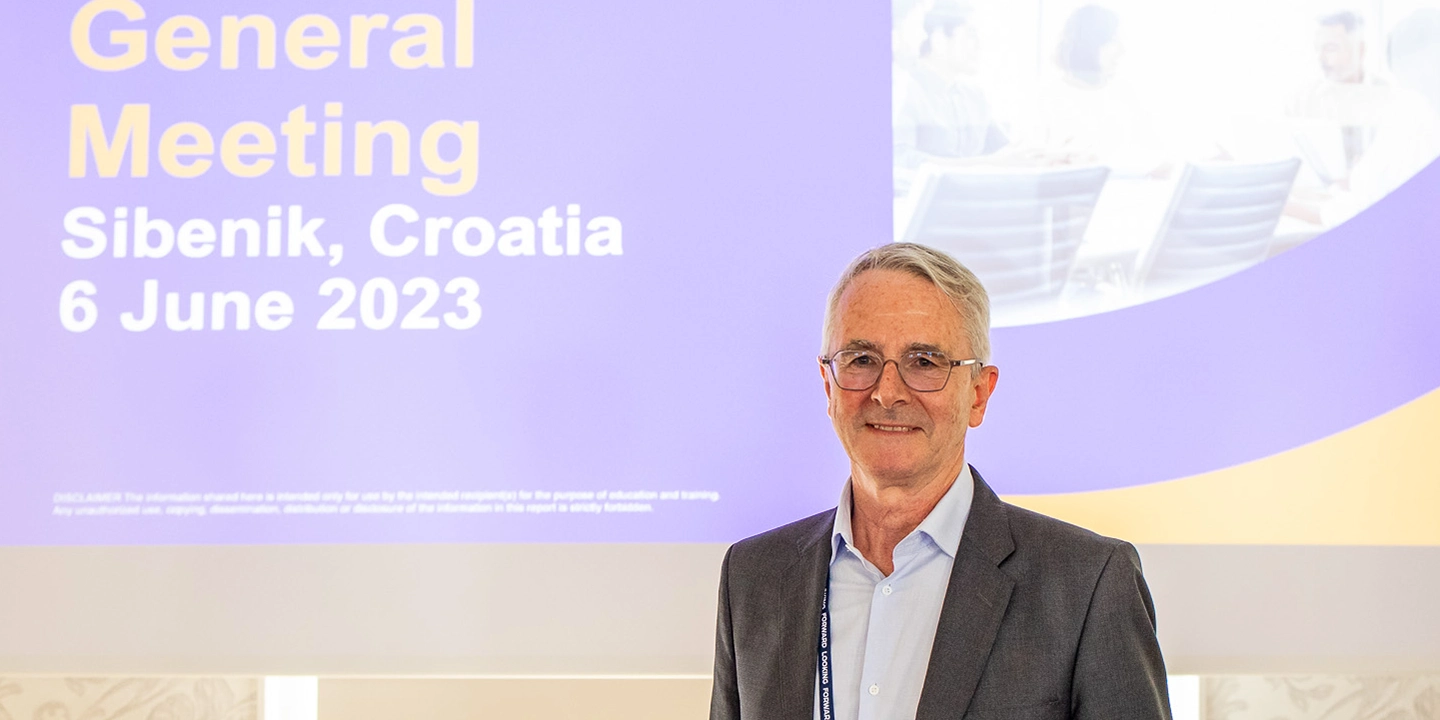With a career spanning almost three decades in the lottery industry, Jean-Luc Moner-Banet has acquired a deep understanding and knowledge of the current Swiss and international gaming and sports betting landscape. In 1998, he joined the Loterie Romande, one of the two Swiss state-authorized lotteries, where he is currently CEO. He also held the position of Deputy Director General to which he was appointed in 2001. Prior to this, he worked for ten years in various roles for gaming industry suppliers.
Moner-Banet has contributed significantly to our industry, in other roles, including as WLA President from 2012 to 2018; as a Member of the WLA Executive Committee since 2008; Member of the European Lottery (EL), Executive Committee from 2009–2012 and since 2021, and Supervisory Chair of EL’s Sport and Sport Integrity working group.
In 2019, he took up his role as Chair of the WLA Betting Integrity on Sports & Horse Racing Committee (BISHRC), established to preserve the integrity of sport by leading the fight against match-fixing and illegal betting, however, his career in the gaming industry began almost four decades.
Interview with the Chair of the WLA BISHRC

What is the current status of sports competition manipulation around the world?
If a game is not won fair and square, it is meaningless. Sports must remain fair and clean, to protect stakeholders across the entire regulated sports and sports betting ecosystem, which means the athletes, teams, coaches, trainers, sports organizations and federations, fans, sports bettors and the regulated lottery and sports betting operators.
We know from several sports monitoring bodies, including the United Lotteries for the Integrity of Sport (ULIS), and its 2024 Monitoring Report that there was an overall slight decrease in the number of suspicious matches identified. Asia and Europe continued to register the most instances, and the sport most affected was soccer. Match fixing continues around the world, and in a growing number of sports.
Interestingly, the ULIS Report, noted a high percentage of suspicious activity monitored in lower-tier level competitions. There is much for us to do. We must work as broadly, and with as many relevant partners as possible, to combat match fixing and maintain sports integrity at all levels, in all sports around the world.
What are some of the key challenges facing our industry?
Our industry faces a number of important challenges. For instance, we must always find a balance between not overregulating and sending bettors to illegal markets, while keeping regulated lottery offerings relevant and responsible.
Related to this, our members must continually educate sports bettors as to why they should choose legal rather than illegal operators. They must find effective ways to communicate this with their customers, who may not be aware of the impact illegal operators can have on the integrity of sport, and loss of funds to good causes.
As I already mentioned, the ULIS Report highlighted that lower tier sports are significantly targeted. More education and resources are required to combat match fixing and protect vulnerable players in the smaller leagues. This is also why it is vital to involve as many stakeholders from the greater ecosystem, such as young, well-known, athlete ambassadors to speak on behalf of the regulated lotteries to get the message across about the risks of match fixing and illicit gaming activities.
Technologies shape our industry and have helped it grow very rapidly over the past decade. But, they have also helped illegal betting markets to flourish and allow such operators to evade authorities faced with transnational networks that are difficult to detect and bring to justice.
How does the Committee support members in addressing these?
In an era of booming online sports betting, it is not surprising that more than half our lottery members offer sports betting. Consequently, our work is more relevant than ever.
Over the past year, the Committee has developed useful materials for members, including the Anti-money laundering best practices guide, with insights into the attraction of betting markets for money launderers, the impact of evolving technologies, and useful measures to establish, in order to better protect themselves from potential money launderers. It also includes an in-depth use case from Loterie Romande, Switzerland, and we would be pleased to add other use cases from around the world.
We are part of the international effort to combat match fixing and maintain sport integrity, by raising awareness of the issues I have already mentioned and by fostering the exchange of knowledge and intelligence through partnerships, projects and events with stakeholders from across the global sports, lottery and sports betting ecosystem.
One such event is our annual Sports Betting Seminar co-organized with the European Lotteries. This year our three-day event in Stockholm, with the theme Future proofing sports betting – Integrity and innovation in lottery offerings, attracted over 100 participants from all WLA regions. International experts discussed the latest trends in betting offers, as well as the integration of innovative technologies into emerging and competitive products. It also provided some of our lottery members the opportunity to talk about their activities and share the successful measures they are taking in their jurisdictions, to maintain sports integrity and combat illegal betting.
Another important project we participate in actively is the Council of Europe’s Addressing Competition’s Manipulation Together (ACT), begun in April 2022 to support the promotion and implementation of the Convention on the Manipulation of Sports Competitions, also known as the Macolin Convention. We presented our work at related events in Morocco (2023), Brazil (2024).
The three-year Project concluded in April at an event in Canada. Given the evolving approaches to sports betting regulation in North America, it was the right moment to hold a meeting in this region, to raise awareness of the issues, and share pertinent expertise and knowledge. This included measures to facilitate international and national cooperation between public authorities (law enforcement and justice), sports organizations, gambling regulators and betting operators.
I believe much was achieved during this first ACT project, to strengthen sports integrity in different countries, provide trainings, and information-sharing seminars, and assist authorities in bringing those involved in illicit activities to justice, thanks to the collaboration of the broad group of stakeholders.
We also supported the United Lotteries for the Integrity in Sports (ULIS) Sports Integrity Seminar last November, which examined crucial aspects of combating competition manipulation, fostering a collaborative approach and new tools designed to enhance the capacity of lotteries in monitoring, education, and international collaboration.
Finally, during the World Lottery Summit, in Paris, last October, we held a seminar entitled: Technology is key to maintaining sports integrity and combatting illegal betting, which provided examples of how industry supplier solutions support lottery and sports betting operators combat match fixing and other illegal betting activities. For instance, by deploying AI technologies, masses of data can be rapidly monitored to establish player betting patterns and recognize suspicious activities across games, such as micro-betting, manipulating results and fraud. Digital payments make it easier to detect, track and flag transactions related to illicit gaming. Geolocation ensures bets are placed in approved locations, while AI and machine learning for monitoring betting patterns in real time detect fraud or match fixing before it escalates.
What other projects is the Committee working on?
Another important project underway with the Council of Europe (CoE) is the development of guidelines which aim to define a set of criteria and thresholds that can be used to assess the provision of services by the betting industry, across a wide range of competitions and sports. They could be applied in all situations including in real time or retrospectively and cover referees, individuals, teams, and entire competitions.
The objective is to ensure that operators prioritize individuals/teams, competitions, and markets (betting types) with high integrity standards and those individuals/teams and competitions where there is already a high level of customer interest in betting on the outcome of an event.
We hope this will also strengthen cooperation with relevant authorities, sports governing bodies and jurisdictions, in cases where concerns exist regarding the prevention, detection, prosecution, and awareness of match-fixing.
We have also agreed to continue to support the CoE’s ACT II project, which will build on previous achievements and comprise a second training program, an annual awareness event on the manipulation of sports competitions and illegal betting, three to four technical assistance missions to enhance national platforms, as well as the development of the new and useful tools.
About
Media inquiries
Legal notice
This pop-up contains legal information about this website.
This content is the property of the World Lottery Association (WLA). It may not be transferred
from the custody or control of the WLA except as authorized in writing by an officer of the WLA.
Neither this document, nor the information it contains, may be used, transferred, reproduced,
published, or disclosed, in whole or in part, either directly or indirectly, except as expressly
authorized by an officer of the WLA, pursuant to written agreement.
The WLA Website has been designed to provide information to the lottery community. The World Lottery Association has used great efforts to provide accurate and up-to-date information. However, WLA excludes any warranty, whether express or implied, for any information provided under these pages. WLA cannot be held responsible for any action taken that is based on the information hereunder.
The WLA Website also contains third party information. Such information is, wherever practically possible, marked with the name of the source and does not necessarily represent the opinion of the World Lottery Association. WLA does not take any responsibility whatsoever for such third party information.
The WLA Website also contains links to other Internet sites. WLA does not have any knowledge of the information contained in such other sites, nor has WLA been able to include such other sites in its efforts to provide accurate information. WLA therefore does not take any responsibility whatsoever for such third party information.
All rights reserved except where indicated.













